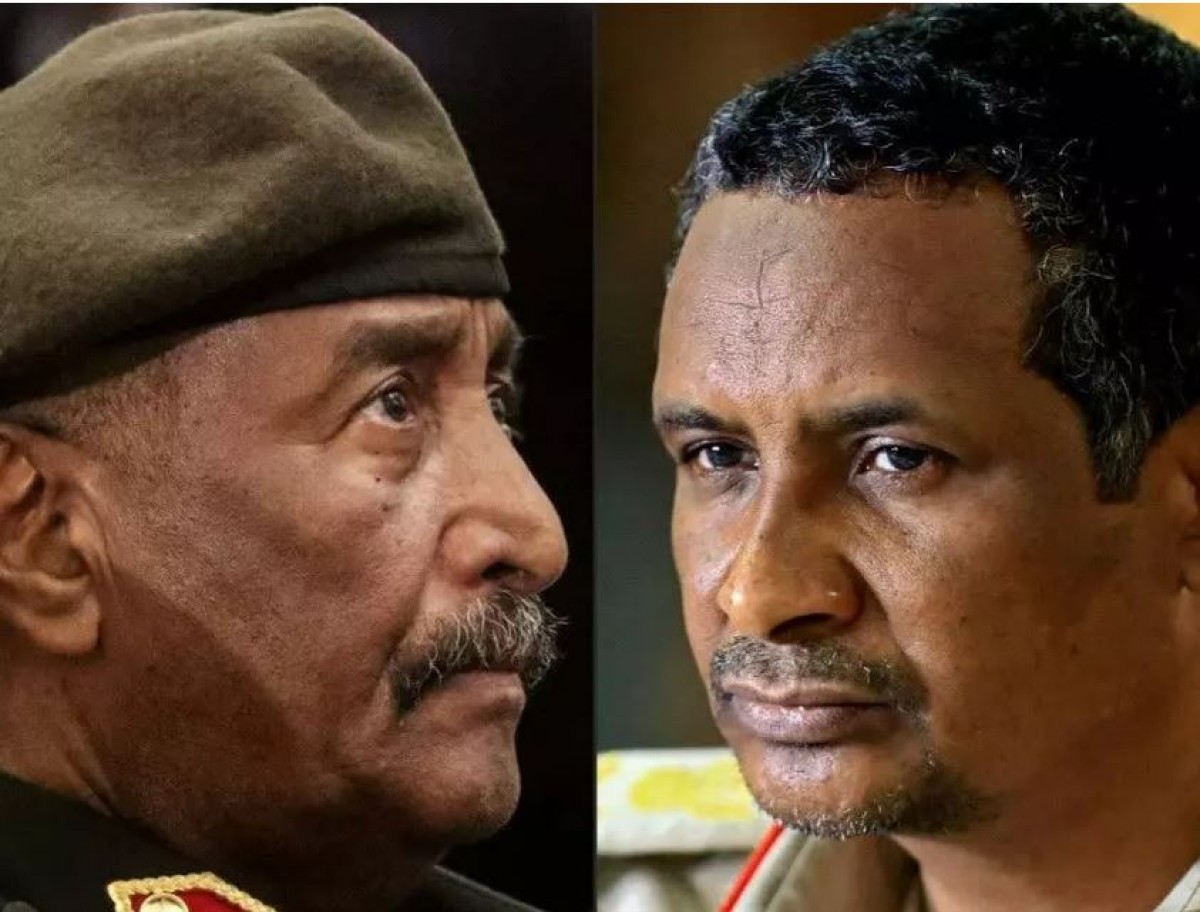 1812
1812
Sudan: A Nation Torn Asunder, A Stage for Global Power Plays
Sudan: A Nation Torn Asunder, A Stage for Global Power Plays
By: A. Yeganeh
Sudan, once a cradle of ancient civilizations, now bears the weight of a profound and multifaceted crisis. The internal conflict that erupted in 2023, like a tempest unleashed, has plunged the African nation into chaos, leaving millions displaced and their lives shattered.
Yet, the suffering of the Sudanese people is not merely a product of internal strife; rather, a larger game unfolds behind the scenes, with extra-regional actors pulling the strings, their ambitions intertwined with the fate of a nation.
The United States: A Shadow Play of Power and Control
The United States has long coveted Sudan's strategic significance. Its location at the crossroads of vital trade routes makes Sudan a key node in the global economic landscape. Washington, with its grand designs to strengthen its alliances and expand its hegemony in Africa, has long viewed Sudan as a prize to be won.
The October 2021 coup d'état, orchestrated by General Abdel Fattah al-Burhan, marked a pivotal moment in this geopolitical game. Al-Burhan, who initially enjoyed a cordial relationship with the Eastern bloc (comprising nations like Russia and China), made a strategic debacle, seeking to secure his regime’s survival by aligning with the West. This realignment, however, occurred at a time when Sudan was embroiled in internal conflicts, with al-Burhan’s opponents gaining traction. The US, sensing an opportunity, stepped in, providing support to al-Burhan and his forces.
The US approach, however, has been marred by hypocrisy. While professing support for the Sudanese people, its measures have contributed to the escalation of conflict and have failed to address the humanitarian crisis. In fact, Washington, in its pursuit of its interests, has left the Sudan vulnerable to famine and suffering, a stark illustration of the callous disregard for human life that often accompanies Uncle Sam’s geopolitical ambitions.
The Eastern Front: A Counteroffensive to Challenge Western Hegemony
Meanwhile, Moscow and Beijing have observed the US' maneuvering in Sudan with growing concern. The turbulent internal situation and the West's political betrayal drove al-Burhan back into the arms of the East. The Russians and the Chinese, sensing a chance to regain influence, responded by providing military aid and support to al-Burhan's forces, seeking to counter the US' destabilizing efforts.
The recent deployments of military forces in northern Sudan, reportedly aided by Russia and China, suggest a shift in the balance of power. This move serves as a warning to the West that its grip on Sudan is not unchallenged. The ongoing turmoil in Sudan, therefore, has become a proxy war between the West and the East, each side vying for dominance and control of this vital strategic asset.
UAE and Turkey: A Complex Web of Interests and Ambitions
The United Arab Emirates (UAE) and Turkey, two nations with growing regional influence, have also entered the fray in Sudan, their motives intertwined with both regional aspirations and broader ideological goals. Ankara, with its ties to the Muslim Brotherhood, has sought to expand its influence across Africa, promoting its ideology and cultivating a network of supporters. The Turks’ intervention in Sudan, ostensibly aimed at supporting the Muslim population, serves as a veiled effort to advance their own interests and gain a foothold in a strategically important region.
Their actions, however, are not entirely independent of the US, which has often played the role of “bad cop” to the US’s “good cop,” implementing Washington’s interests through a more aggressive and less transparent approach. This intricate web of alliances and rivalries further complicates the already volatile situation in Sudan, making it difficult to discern genuine intentions and motives.
The Global Chessboard: Sudan as a Pawn in a Wider Power Struggle?
The conflict in Sudan cannot be viewed in isolation. It is a microcosm of the larger geopolitical struggle between the East and West, a reflection of a global chessboard where every nation is a pawn vying for position. From the Taiwan-China tensions in the East to the Ukraine-Russia conflict in Europe, each conflict serves as a battleground, a proxy war where the East and West seek to assert their dominance.
Sudan, with its rich resources and strategic location, becomes a valuable piece on this global chessboard. The outcome of the internal conflict in Sudan will profoundly impact the balance of power between the East and West in Africa, determining which side gains control over this vital region.
The Sudanese people, caught in the crossfire of these global power plays, have become victims of a conflict fueled by external ambitions. Their plight, their suffering, and their displacement are mere footnotes in the larger narrative of geopolitical maneuvering.
As the world watches, it is crucial to remember that the people of Sudan deserve a peaceful resolution to their crisis and a future free from the machinations of global power players. Their suffering must not be a casualty of a geopolitical game but a catalyst for a just and lasting peace.
 1812
1812
Comment
Post a comment for this article